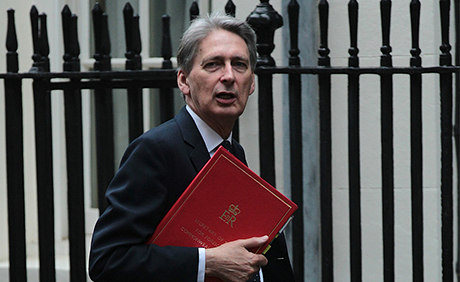Before the Autumn Statement last month, Paul Connolly, MCA Think Tank Director, set out six priorities for growth. These themes remain relevant and will now feed into the MCA's New Economy 2020 and Beyond project.
1) Create a climate for investment
The UK needs a stable and incentivised climate for investment. Brexit is dampening investment decisions. Like the election of Donald Trump in the US, Brexit is viewed by many business leaders as a significant ‘data point’ justifying caution. Plainly, in the context of the now relentlessly changing and innovating digital economic normal, this approach is counterproductive for the UK’s growth prospects. Business leaders cannot wait until Brexit negotiations are concluded before investing and innovating without causing serious detriment to our economy.
More clarity on the UK’s plans for Brexit is essential. But there are other signals the Government can give that the UK remains committed to growth, including further tax incentives for R&D and for digital. The UK has long needed a significantly more entrepreneurial culture. MCA member firms are involved in supporting entrepreneurship. Extensions of the Enterprise Zones Scheme to support more start-ups would be welcome.
2) Secure a stable infrastructure pipeline
One key encouragement to investment in the UK would be an enlarged and stable infrastructure pipeline. The MCA recommended the creation of the National Infrastructure Commission. We welcome the recent decisions on Heathrow and Hinkley Point. Now additional clarity about the role of infrastructure in, for example, the regeneration of the North of England would also be welcome.
Many MCA firms, including numerous infrastructure specialists, are already extensively engaged right across the infrastructure value chain. Their message is that as well as a stable pipeline, the Government needs infrastructure projects that are focused on economic and other outcomes. In the North, a properly outcome-focused HS2 and an array of trans-Pennine transport initiatives would be constructed so as to create labour and service markets similar in spatial and population scope to those realised by London and South East commuter structures.
3) Be international – in talent and trade
The UK’s success stems from its international trading character. Our growth is dependent on our access to global insights, and the degree to which overseas investors and the best talent feel welcome here. In seeking to reassure the world that this remains the case, the Autumn Statement must counter the perception that the UK’s Brexit decision is isolationist. The Statement could reinforce the message that the UK remains keen to win the global war for talent. It could set out the need for continuing access to the Single Market and reasonably free movement of labour.
4) Explain where the UK adds real value
As importantly, the Autumn Statement should be used to demonstrate that the Government understands why these things matter. The UK is in many ways the world’s most successful intermediate economy.
We derive significant economic power less from our ability to export goods we manufacture wholly in this country, and more from our contributions to complex global value chains, especially through the support services in which we excel.
This is not just about our presence within obvious partnerships such as Eurofighter, Airbus and trans-European infrastructure and energy initiatives. German car giants depend on UK SMEs for components and digital input. Global enterprises depend on UK consultants for integration of complex multilateral projects. Consumers and businesses across the world depend on UK financial services. Commercial contracts are underpinned by UK legal decisions.
We must continue to embed ourselves within all these supply chains.
5) Innovation depends on openess
We should use the Brexit opportunity to examine ways in which we can innovate more and produce a wider range of exportable product. However, innovation is a global matter. Those countries most open to the world’s innovators and entrepreneurs will win the new digital economy’s prosperity race. That openness is about a mix of scale and speed.
On scale, the UK’s presence within the EU is not just relevant to EU migrants, but also to non-EU migrants. It symbolises our outward-facing character.
On speed, the virtue of the EU arrangements is the ease with which value-adding teams can be assembled. UK consulting and other professional services industries can deploy staff swiftly and without unnecessary bureaucracy throughout the EU. That speed may be critical to securing work in a restless digital economic normal.
And the condition is reciprocal. If a UK car manufacturer is interested in insights on connected or driverless cars from Germany, then the UK outlet of a global consulting firm can deploy a team from its German automotive practice immediately. In seeking to reset our use of migrant labour to a controlled, global model, aligned to a comprehensive assessment of our skills needs, we will need to match the inherent agility of the status quo.
6) Leading the world on digital
The UK should seek a more ‘prime’ position in some industries. One such industry is digital, whose growth may also prove critical to the improvement of the UK’s productivity. While the UK is a significant digital hub, we have not always succeeded in supporting digital innovators, both in terms of the regulatory models deployed, and in the range of incentives made available to help them achieve scale and global reach. There may be opportunities to reform the digital regulatory and investment environments to support the ‘bedroom entrepreneurs’ and disruptors for whom the largely corporatist assumptions of the UK regulatory system are irrelevant.
Such reforms should however enshrine interoperability with other global regulatory systems and initiatives, critical for this most international industry. We oppose any changes to the UK’s relationship to GDPR, which could seriously damage digital interactions with the EU and the wider world. Any threats to perceptions of the UK’s ‘adequacy’ position on data should be avoided.

